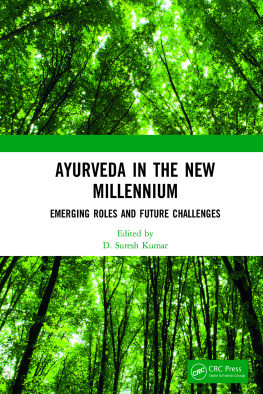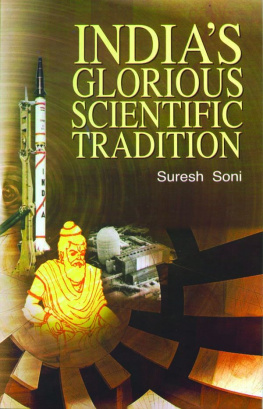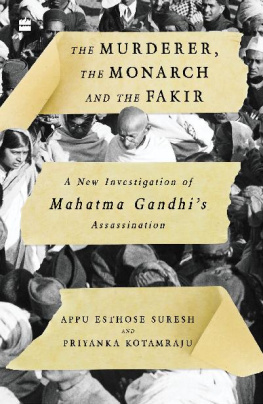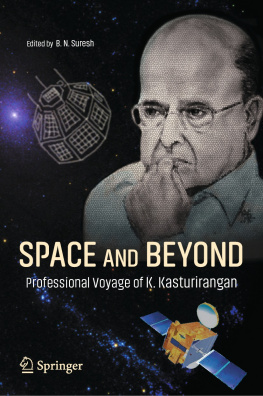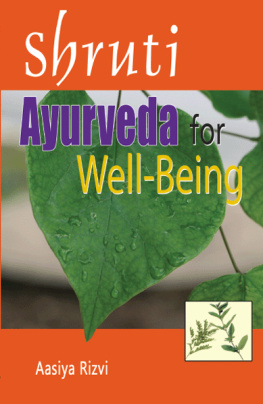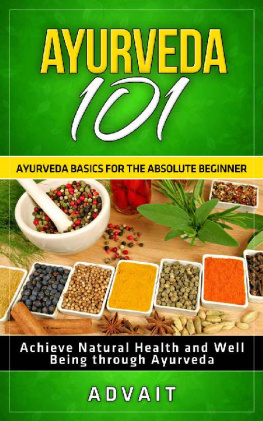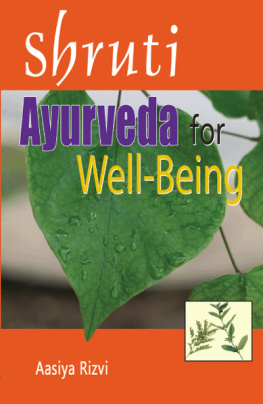Kumar D. Suresh - Ayurveda in the New Millennium
Here you can read online Kumar D. Suresh - Ayurveda in the New Millennium full text of the book (entire story) in english for free. Download pdf and epub, get meaning, cover and reviews about this ebook. year: 2020, publisher: Taylor & Francis Group, genre: Religion. Description of the work, (preface) as well as reviews are available. Best literature library LitArk.com created for fans of good reading and offers a wide selection of genres:
Romance novel
Science fiction
Adventure
Detective
Science
History
Home and family
Prose
Art
Politics
Computer
Non-fiction
Religion
Business
Children
Humor
Choose a favorite category and find really read worthwhile books. Enjoy immersion in the world of imagination, feel the emotions of the characters or learn something new for yourself, make an fascinating discovery.
- Book:Ayurveda in the New Millennium
- Author:
- Publisher:Taylor & Francis Group
- Genre:
- Year:2020
- Rating:4 / 5
- Favourites:Add to favourites
- Your mark:
- 80
- 1
- 2
- 3
- 4
- 5
Ayurveda in the New Millennium: summary, description and annotation
We offer to read an annotation, description, summary or preface (depends on what the author of the book "Ayurveda in the New Millennium" wrote himself). If you haven't found the necessary information about the book — write in the comments, we will try to find it.
Ayurveda in the New Millennium — read online for free the complete book (whole text) full work
Below is the text of the book, divided by pages. System saving the place of the last page read, allows you to conveniently read the book "Ayurveda in the New Millennium" online for free, without having to search again every time where you left off. Put a bookmark, and you can go to the page where you finished reading at any time.
Font size:
Interval:
Bookmark:

Ayurveda in the New Millennium
Ayurveda in the New Millennium
Emerging Roles and Future Challenges
Edited by
D. Suresh Kumar

First edition published 2021
by CRC Press
6000 Broken Sound Parkway NW, Suite 300, Boca Raton, FL 33487-2742
and by CRC Press
2 Park Square, Milton Park, Abingdon, Oxon, OX14 4RN
2021 Taylor & Francis Group, LLC
CRC Press is an imprint of Taylor & Francis Group, LLC
Reasonable efforts have been made to publish reliable data and information, but the author and publisher cannot assume responsibility for the validity of all materials or the consequences of their use. The authors and publishers have attempted to trace the copyright holders of all material reproduced in this publication and apologize to copyright holders if permission to publish in this form has not been obtained. If any copyright material has not been acknowledged please write and let us know so we may rectify in any future reprint.
Except as permitted under U.S. Copyright Law, no part of this book may be reprinted, reproduced, transmitted, or utilized in any form by any electronic, mechanical, or other means, now known or hereafter invented, including photocopying, microfilming, and recording, or in any information storage or retrieval system, without written permission from the publishers.
For permission to photocopy or use material electronically from this work, access www.copyright.com or contact the Copyright Clearance Center, Inc. (CCC), 222 Rosewood Drive, Danvers, MA 01923, 978-750-8400. For works that are not available on CCC please contact mpkbookspermissions@tandf.co.uk
Trademark notice : Product or corporate names may be trademarks or registered trademarks, and are used only for identification and explanation without intent to infringe.
Library of Congress Cataloging-in-Publication Data
Names: Suresh Kumar, D., 1949- editor.
Title: Ayurveda in the new millennium : emerging roles and future challenges / edited by D. Suresh Kumar.
Description: 1. | Boca Raton, FL : CRC Press, 2021. | Includes bibliographical references and index.
Identifiers: LCCN 2020032988 | ISBN 9780367279547 (hardback) | ISBN 9780429298936 (ebook)
Subjects: LCSH: Medicine, Ayurvedic. | Herbs--Therapeutic use. Classification: LCC R605 .A8873 2021 | DDC 615.5/38--dc23
LC record available at https://lccn.loc.gov/2020032988
ISBN: 978-0-367-27954-7 (hbk)
ISBN: 978-0-429-29893-6 (ebk)
Typeset in Times
by Deanta Global Publishing Services, Chennai, India

yurvd rakati rakita
He who protects Ayurveda shall, in turn, be protected by It.
Contents
N.K.M. Ikbal, D. Induchoodan and D. Suresh Kumar
V. Remya, Alex Thomas and D. Induchoodan
Nishanth Gopinath
V. Remya, Maggie Jo Alex and Alex Thomas
S. Ajayan, R. Ajith Kumar and Nirmal Narayanan
G.R. Arun Raj, Kavya Mohan, R. Anjana, Prasanna N. Rao, U. Shailaja and Deepthi Viswaroopan
Sanjeev Rastogi, Arindam Bhattacharya and Ram Harsh Singh
S. Noorunnisa Begum and K. Ravikumar
Prachi Garodia, Sosmitha Girisa, Varsha Rana, Ajaikumar B. Kunnumakkara and Bharat B. Aggarwal
Atreya Smith
D. Suresh Kumar
Ayurveda or the sacred knowledge of longevity has been practiced in India and many Asian countries since time immemorial. Names of the celestial physicians, Avinikumra ( Dasra and Nsatya ) appear in the documents excavated from Boghaz Koyi in the Cappadocia region of present-day Turkey. Similarly, the discovery of the Ayurveda text Nvantakam from a ruined Buddhist monastery near Kuchar in Chinese Turkestan indicates the popularity of Ayurveda in that faraway land. In India, this medical system occupied a lofty position as a result of royal patronage.
Western medicine was introduced into India by the Portuguese in the 16th century. Alfonso de Albuquerque, the Portuguese commander and conqueror of Goa, founded the Hospital Real (Royal Hospital) in 1510, which was converted in 1842 into the School of Medicine and Surgery. Although it was the Portuguese who introduced Western medicine into India, it was the British who later established and consolidated both its practice and study in the subcontinent. The history of Western medicine in India is almost exclusively that of the development of medicine during British rule. The report of the committee (1943) headed by Sir Joseph William Bhore was put into practice in independent India. Consequently, Western medicine became the dominant medical system of the country.
Interest in Ayurveda started growing all over the world in the late 1970s. To encourage national and international efforts to develop and implement primary healthcare throughout the world, the World Health Organization convened the International Conference on Primary Health Care (612 September 1978) at Alma Ata, in the former Soviet republic of Kazakhstan. This conference adopted the famous Alma Ata Declaration, which called on member nations to formulate national policies, strategies and plans to launch and sustain primary healthcare. The member states were especially encouraged to mobilize their own national resources. The Western world was thus inspired to study in depth the various traditional medical systems of the world. Ayurveda was an important one among them, having a sound theoretical basis.
The enthusiasm generated by spiritual organizations, such as the Chinmaya Mission, International Sivananda Yoga Vedanta Center, International Society for Krishna Consciousness (I.S.K.C.O.N.), Isha Foundation, Maharishi Foundation, Osho Foundation and the Art of Living International Center, was also a reason for the newfound interest in Ayurveda. In Germany, Austria and Switzerland, Ayurveda is one of the fastest-growing complementary and alternative medical systems.
In spite of the growing interest in Ayurveda, a closer look at the system prevailing in India reveals that it is suffering from many shortcomings. The theory of Ayurveda is based on unique concepts, which are very different from those of Western medicine. This fundamental difference between the two systems is ignored in contemporary Ayurveda to such an extent that Ayurveda is taught and practiced along the lines and with the help of Western medicine. Many stumbling blocks have to be removed if Ayurveda is to cater to the needs of a wider audience. This book attempts to identify such areas. Much progress has been made since the Alma Ata Declaration in understanding the theoretical constructs of Ayurveda. This book reviews that progress as well.
, entitled What We Learn from the History of Ayurveda , traces a few of the missions undertaken by ancient personalities to rediscover Ayurveda, and presents for the first time some evidence that is very valuable from the perspective of the history of medicine. The chapter objectively unravels the genesis of Unani medicine, the popular medicine of the Muslim society of northern India. What Ayurveda and Unani learned from each other is also highlighted. The chapter concludes with a call to revive the culture of inquisitiveness and questioning for advancing the Ayurveda renaissance.
The various regulations concerning the commercial manufacture of ayurvedic medicines are generally known only to those related to the industry. Not much published literature is available on the regulatory aspects of the manufacture of ayurvedic medicines. describes the various steps to be undertaken to obtain a manufacturing license or loan license, good manufacturing practices, an inspection of the facility, labeling of products, the shelf-life of ayurvedic medicines, punishment for violation of the Drugs and Cosmetics Act (1940) and regulatory problems that require solutions.
Font size:
Interval:
Bookmark:
Similar books «Ayurveda in the New Millennium»
Look at similar books to Ayurveda in the New Millennium. We have selected literature similar in name and meaning in the hope of providing readers with more options to find new, interesting, not yet read works.
Discussion, reviews of the book Ayurveda in the New Millennium and just readers' own opinions. Leave your comments, write what you think about the work, its meaning or the main characters. Specify what exactly you liked and what you didn't like, and why you think so.

